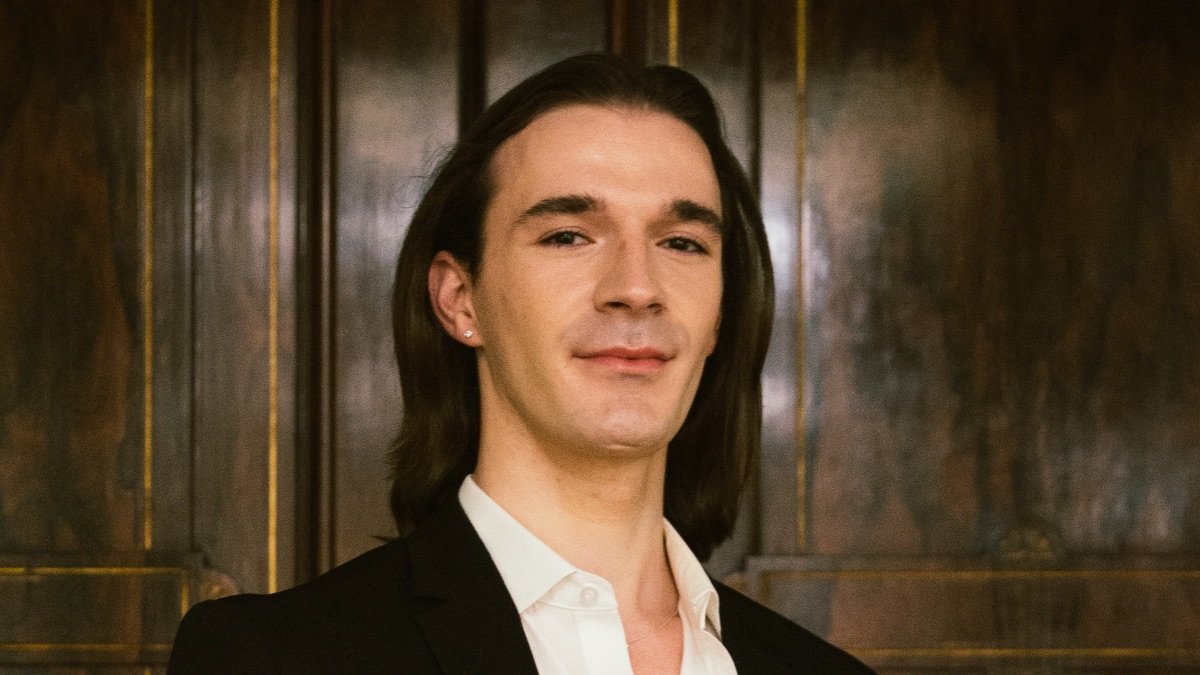
Richard Pittsinger
Tenor
“Such stunning vocal moments that we found ourself holding our breath.”
— Voce di Meche
-
Praised by Anthony Tomassini of The New York Times for his “winning singing and youthful bearing,” American tenor Richard Pittsinger is quickly establishing himself as a leading performer of both early and modern repertoire. His 2024-25 season includes roles for the Boston Early Music Festival in both their chamber opera (Telemann’s Don Quichotte) and the 2025 Festival (Fabius in Kaiser’s Octavia), the role of Lurcanio in Handel’s Ariodante for Boston Baroque, his Charlotte Symphony debut in Handel’s Messiah, the title role in Monteverdi’s Il Ritorno d’Ulisse in patria with Artek, and in summer 2025 he begins his tenure as a member of the 12th cohort of young artists in Bill Christie’s Jardin des Voix, singing Orphée/Ixion in Charpentier’s la Descente d’Orphée aux Enfers, and La Peinture in Charpentier’s Les Arts Florissants.
An artist of rare versatility whose performance experience spans music across four centuries, Pittsinger’s recent principal operatic roles include Céphale in Élisabeth Jacquet de La Guerre’s Céphale et Procris with the Boston Early Music Festival, Aminta in Handel’s Atalanta with Julliard Opera, Polinesso in Jonathan Dawe’s Being Ariodante with the Italian Academy, Orfeo in Luigi Rossi’s L’Orfeo with Julliard Opera, Lysander in Britten’s A Midsummer Night’s Dream with Julliard Opera, and “The Rocket” in Laura Karpman’s Wilde Tales at the Glimmerglass Festival. Additional stage credits include Verdi’s Falstaff at the Aspen Music Festival (Dr. Caius), Handel’s Acis & Galatea (Damon & Corydon), Virgil Thomson’s The Mother of Us All (Andrew Johnson), and Offenbach’s Orpheus in the Underworld (Mercury). As an Alvarez Young Artist at Garsington Opera in 2024, he covered the title role in Rameau’s Platée, under the baton of Paul Agnew.
Equally comfortable on the concert stage, Pittsinger has additionally appeared as tenor soloist with The Cecilia Chorus of New York, The Co-Cathedral at St. Joseph’s, as well as Julliard415. He has collaborated with, or appeared under the direction of, such musicians as William Christie, Francesca Zambello, Richard Egarr, Gary Wedow, Mark Shapiro, Avi Stein, Mary Birnbaum, and Steven Osgood.
Pittsinger’s expressive singing and powerful high register has earned him widespread acclaim from various leading publications throughout the United States. During his recent appearance in Handel’s Atalanta, Opera News noted that “As Aminta, Richard Pittsinger skated nimbly over his runs and demonstrated an impressive high extension,” while Voce di Meche described “such stunning vocal moments that we found ourselves holding our breath.” Following a Carnegie Hall recital associated with Renée Fleming’s SongStudio 2022, Operawire.com described how “Pittsinger had strength, particularly in the high register,” and Seen and Heard International lauded his “stage presence to burn… a mastery of Baroque style…and equal ease in Benjamin Britten’s ‘At Day-Close in November…”
As a young treble, Pittsinger received early training at New York’s prestigious St. Thomas Choir School, recording or performing with the Orchestra of St. Luke’s under the baton of John Scott, the Dresden Symphony with Vladimir Jurowski and, alongside his father David Pittsinger, the Pittsburgh Symphony with Leonard Slatkin. He made his operatic debut at age 11 at the Castleton Festival, subsequently appearing at the Glimmerglass Festival.
A graduate of The Juilliard School, Pittsinger received a Bachelor and Master of Music under the tutelage of Elizabeth Bishop, performing in masterclasses with Renée Fleming and Nicholas McGegan. He pursued additional studies at the Tanglewood Institute, Amherst Early Music Festival, and Aspen Music Festival.
-
Renee Fleming’s SONGSTUDIO
“With stage presence to burn, tenor Richard Pittsinger displayed a mastery of Baroque style in ‘Tis Nature’s Voice’ from Henry Purcell’s Hail, Bright Cecilia; and equal ease in Benjamin Britten’s evocative ‘At Day-Close in November’ from the cycle Winter Words, to poems by Thomas Hardy.”
-seenandheard-international.com
“Pittsinger had strength, particularly in the upper register, hinting that within his lighter, lyrical voice, there’s some spin to ability that can be called upon when needed.”
-Operawire.com
JACQUET DE LA GUERRE | Cephale et Procris “Cephale”
Boston Early Music Festival
“The three male leads … displayed the ideal for each voice and acting type. Richard Pittsinger… led the opera from the demanding role of Cephale. The versatile tenor sang well in both solo and ensemble, matching his tone to the context. I most enjoyed his graceful trills and clear pronunciation of funky French consonants.”
– The Boston Musical Intelligencer
HANDEL| Atalanta “Aminta”
Juilliard Opera
“Richard Pittsinger made an excellent Aminta who had such stunning vocal moments that we found ourself holding our breath.”
-Voce di Meche
“As Aminta, Richard Pittsinger skated nimbly over his runs and demonstrated an impressive high extension.”
-Opera News
ROSSI | Orfeo “Orfeo”
Juilliard Opera
“Their essential love, despite threats from outside and their own doubts and insecurities, come through beautifully thanks to the winning singing and youthful bearing of the tenor Richard Pittsinger as Orfeo and the soprano Julie Roset as Euridice.”
-The New York Times
VERDI | Falstaff “Dr. Caius”
Aspen Music Festival and School
“Tenor Richard Pittsinger made a suitably prissy Dr. Caius.”
-The Aspen Times
News
Media
Nicolas Renier L’Indifference Puni
HANDEL Folle dunque from Il Trionfo del Tempo e del Disinganno
Masters Recital - Richard Pittsinger, Tenor
Handel 1736 Atalanta HWV 35
Bach Benedictus from B Minor Mass



